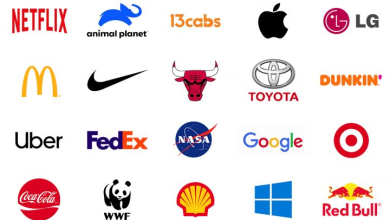How to Start Your Small Business in Trucking
If you are considering getting into the trucking business, then you are about to make a lucrative business move. According to the American Trucking Association, the trucking industry is a very big part of the American economy. Statistics from the Association indicate that almost all consumer products were at one point transported by truck.
To put it in numbers, the trucking industry transported 72.5% of all the cargo that was transported in the country in 2019. This is the equivalent of 11.84 billion tons. In the same year, the trucking industry contributed $791.7 billion to the economy which was a staggering 80.4% of the country’s total spend on cargo transportation.
Getting Into The Trucking Industry
As good as the figures above look, it is important to get the foundation right in order to start your career in trucking properly. Taking things step by step in the following order will get you there:
1) Put It In Writing
Putting things on paper helps to crystalize the plans you have. A business plan will also guide you in terms of setting up, creating a budget and doing projections and ensuring you get every part of the setting up process right as is required by law.
A good business plan will also give you a clear picture of where you are in terms of start-up capital, assets and strategy such as acquiring additional venture capital if you will need it. You will, in fact, need a concise business plan if you plan to apply for financing. It will also help you create timelines such as when you will break even, projected returns, cash flow and other financial planning forecasts and reports. The U.S Small Business Administration (SBA) business plan guide can help you get it right.
2) Formal Business Registration
The next step will be registering your business following local or state laws. Before you can do this, you will need to decide on a business name. Choose one that communicates the nature of your business and that has a personality that can be used to build it into a brand. At this point, you should also look into having a logo made. Start with a list and narrow it down to arrive at the best choice.
You will need to check that the name of your choice is available. Go to the U.S Patent and Trademark website and do a search to ensure your chosen name is available.
With that done, you will need to decide on a business entity. It is important to have a good understanding of how each one works in terms of personal liability protection, taxes, profit share and other details.
According to professionals from llcguys.com a limited liability company (LLC) is the way to go if you will be starting a self-owned trucking business in order to protect your personal assets. If you will have a partner, consider a limited liability to protect every partner’s personal assets. You can find the requirements for registering these and other entities in your area online. They include supporting documents like names, location, a general business agreement for partnerships and companies and tax identification information.
3) Get Business Permits, Licenses and Insurance
After registering your business, you will need to get a license, permits and insurance. Trucking companies need particular licenses and insurance cover in accordance with the unique challenges and liabilities of the business. Almost every state requires that you get a business license if you will be setting up headquarters within the state.
You will also need to get an International Registration Plan if you will be moving cargo that exceeds 26,000 pounds and if you will be crossing state lines. This license will allow you to operate in all states and even some of Canada’s provinces.
Additionally, look into any local license and permit requirements. They will all need to be in order before you start operating.
You will need different types of insurance including cargo, bobtail, public liability and physical damage insurance. A start-up lawyer or business consultant can offer guidance with this and other set-up processes.
4) Choosing a truck
Your truck will be your primary asset. Ensure you choose the right one in terms of:
- Weight capacity
- Cost
- Comfort and cab style
- Weather resistance
- After-sales services including in other states
- New or used
Before you make a decision, take your truck on a test drive. Reviews from other truckers and trucking companies recommend Peterbilt. Kenworth and Freightliner trucks.
Perhaps you will be leasing rather than buying to get started. Both options have pros and cons. Buying means you have enough capital to do so or you qualify for a loan that will allow you to make monthly payments. See what the total cost plus interest will be over the duration of the loan and compare that with leasing.
With leasing, you also make regular requirements but they will be to have the truck to use and not to own it. You will have to adhere to given terms and specifications pertaining to maintaining it in good condition and mileage which have restrictions. One advantage is that the lessor will cover maintenance and servicing costs.
5) Securing Venture Capital
Buying a truck requires a large outlay. A commercial truck will cost you approximately $80,000. You may also need financing to take care of operational costs before you break even. Statistics from the Small Business Administration (SBA) indicate that trucking and transport companies took out loans of an average amount of $106,000. This is where a concrete business plan will help you. You need to have a plan to cover operational costs and maybe set up costs like licenses and insurance before you start turning out a profit.
You can be considered for a trucking business loan by:
- SBA who have loaned approximately 500,000 U.S trucking companies in the U.S capital
- Equipment financing loans that are given specifically for purchasing business machinery and equipment. They are available at bank and capital financing loans.
- Short-term business loans are also available from banks and capital financing loans.
Other Helpful Resources
Another organization you can get help from is DAT Freight and Analytics. Here you can find help. As the largest truckload freight marketplace in North America, the organization incorporates carriers, transportation brokers, carriers, news organizations and industry analysts. The 249 million freighters that have a database worth $110 billion of transactions use the body’s data insights and market trends to make business decisions. rely on DAT for market trends and data insights derived from 249 million freight matches and a database of $110 billion of market transactions.
You Too Can Do It
You too can be a success as the owner of a trucking business. Do the due diligence following the steps outlined above, ask for help when you need it and you will be the latest success story in the business.





